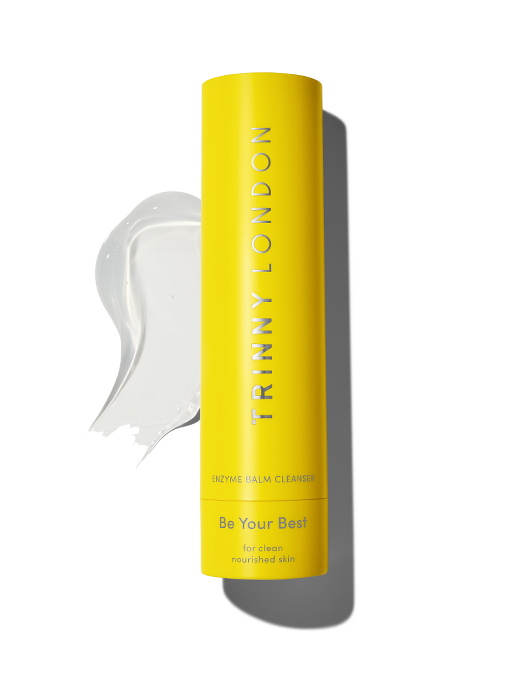
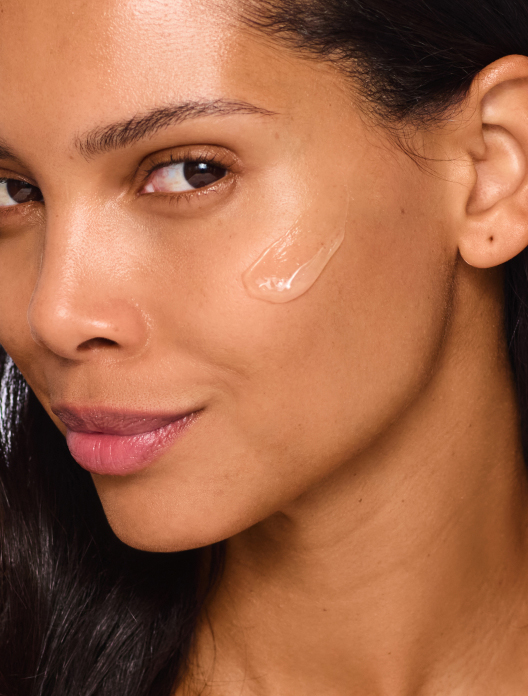
Be Your Best
Oil-based transforming cleanser for clean, nourished skin, suitable for all skin types
Choose 3 free samples with every order

There are some beauty products which can be seen as an optional extra. Take a retinal serum for example – yes, it will bring oomph back to a tired face, firm skin and reduce fine lines, but it’s not essential to the overall condition of your skin. It’s the strawberry jam on your toast – a nice to have, rather than a must-have. Cleanser, on the other hand, is very much a non-negotiable part of your routine.
The role of a cleanser is, as you might have guessed by the name, to cleanse your skin. They’re designed to wash off anything that has accumulated on the surface of our complexions. Our skin goes through a lot in a day, with things like makeup, grime, pollution and SPF all sitting on its surface by the time we reach our sinks in the evening. These factors are naturally less present at night, but there are still things like bacteria on our pillows and sweat to contend with. A cleanser allows you to remove all of these components from your skin, keeping your complexion happy and healthy. They can take a number of different forms, from balm cleansers to gel cleansers, and range from a very simple, fuss-free formulation to something packed with exciting active ingredients.
The answer to whether you should use your cleanser daily? A resounding “absolutely”. In fact, you should ideally be cleansing your skin not once, not twice, but three times a day. At night, a double cleanse is best. The first cleanse will remove surface-level grime, allowing your second cleanse to travel deeper into the skin for a proper clear-out. In the morning, just one cleanse is all you need, as you’re unlikely to have worn makeup and SPF overnight.
Not convinced you need to wash your face in the morning? Allow Skin Expert and Pro Facialist Fiona Brackenbury to convince you otherwise. “There’s a Tiktok trend at the moment advising you not to cleanse your skin in the morning as your skin produces its own natural oils overnight,” explains Fiona. “There is an element of truth in that, as your skin does produce natural oils, but the problem is that amongst all that oil there is sweat and bacteria. We know there’s a fine line between the good and bad bacteria on our skin, and a cleanser is a good way of upholding that balance.”
You should use your cleanser both morning and night, as the first step in your skincare routine. By using your cleanser first, you’ll rid the surface of the skin of any impurities, leaving a nice clear canvas for the rest of your skincare routine. Products like liquid exfoliants, serums and moisturisers will all be able to work harder on your skin if they don’t have to battle through a barrage of debris to get there.
If you find that by the time you’re ready for bed, the idea of washing your face feels so exhausting that you’d rather bypass the whole experience, then think about what time might work better. Instead of leaving it as the last thing you do before your head hits the pillow, why not cleanse your skin as soon as you get in from work? Then you can continue with your evening, smug with the knowledge that your skin is taken care of.
Cleansers have become more and more advanced over the years, with innovations to not just improve our skin, but to make the process of washing our faces more convenient too. Micellar water, along with makeup wipes, certainly slots into the second category, allowing you to cleanse your skin without the need to be in a bathroom with running water. Which, if you've had a late night, are staying with a friend or spending the weekend at a festival, is brilliant. But, and it’s a big but, they’re not a smart long-term cleansing solution. While micellar water and makeup wipes do a good job of removing surface-level dirt (hence why you can see a satisfying amount of makeup on them) they’re not delivering a deeper cleanse. This is why continued use can lead to dull, congested skin. Trade yours in for a sophisticated cleanser, used at the sink – your skin will thank you for it.
A commonly asked question is whether or not cleansers remove blackheads. “A blackhead is a combination of dead skin cells and oil building up and oxidising, which turns it black,” explains Fiona. So, contrary to popular belief, the colour has nothing to do with dirt or grime. “A cleanser won’t get rid of a blackhead, but it will help to prevent them by helping to manage the bacteria and oil levels of the skin,” adds Fiona. If blackheads, or breakouts of any kind, are your biggest skin bugbear, then sticking to a consistent cleansing routine will certainly help to keep them at bay. To go the extra mile, consider following with a liquid exfoliant containing beta-hydroxy acids and a serum formulated with retinal and niacinamide.
Shop the article


Oil-based transforming cleanser for clean, nourished skin, suitable for all skin types
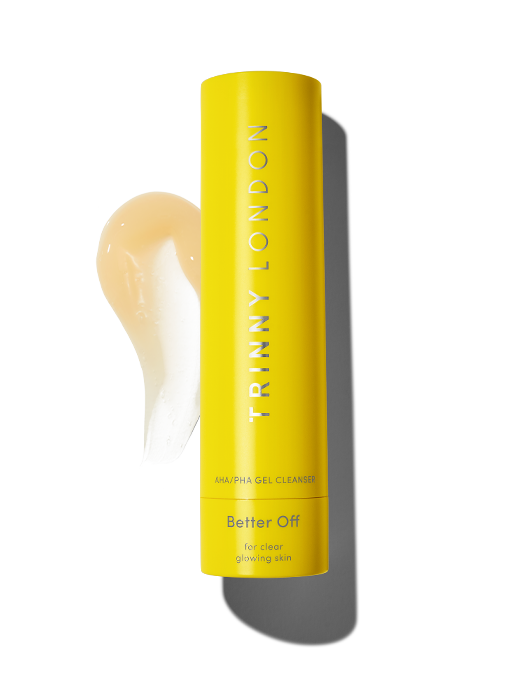
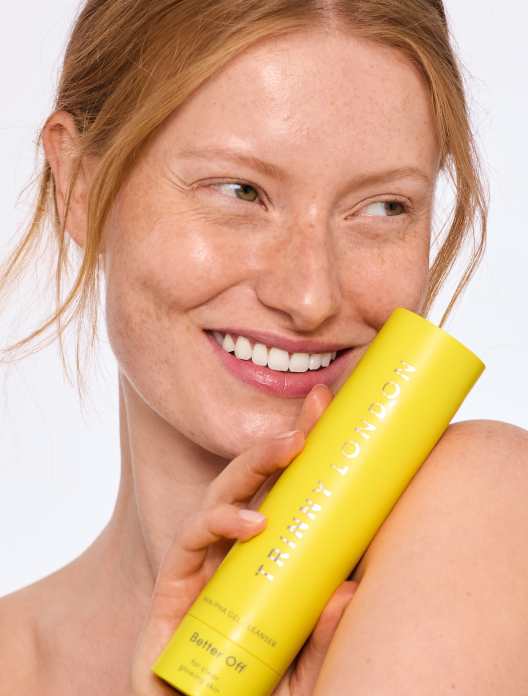
Exfoliating gel cleanser for clear, glowing skin, suitable for all skin types
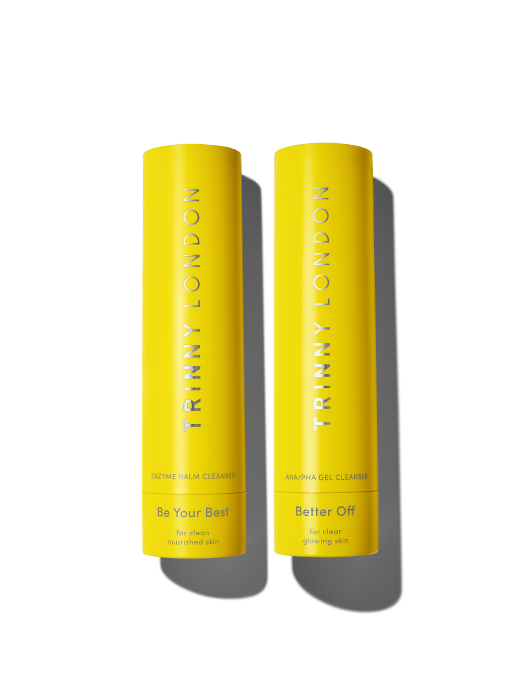
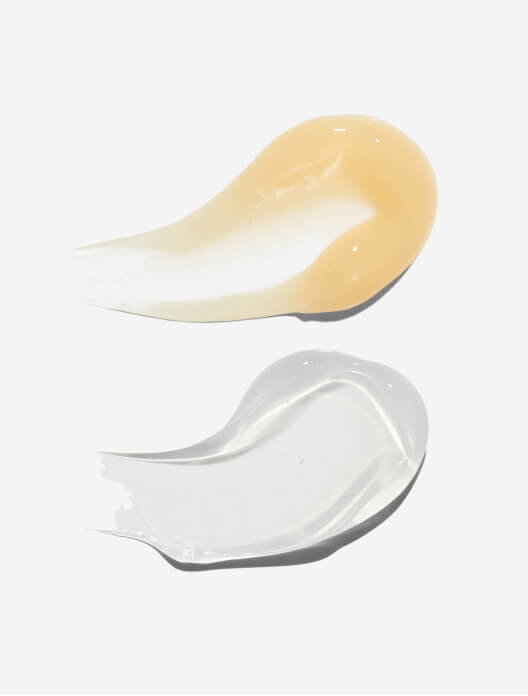
The ultimate deep clean for all skin types. Enzyme balm cleanser & AHA/PHA gel cleanser